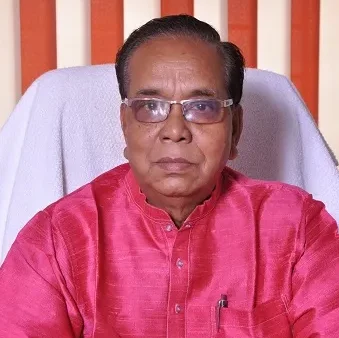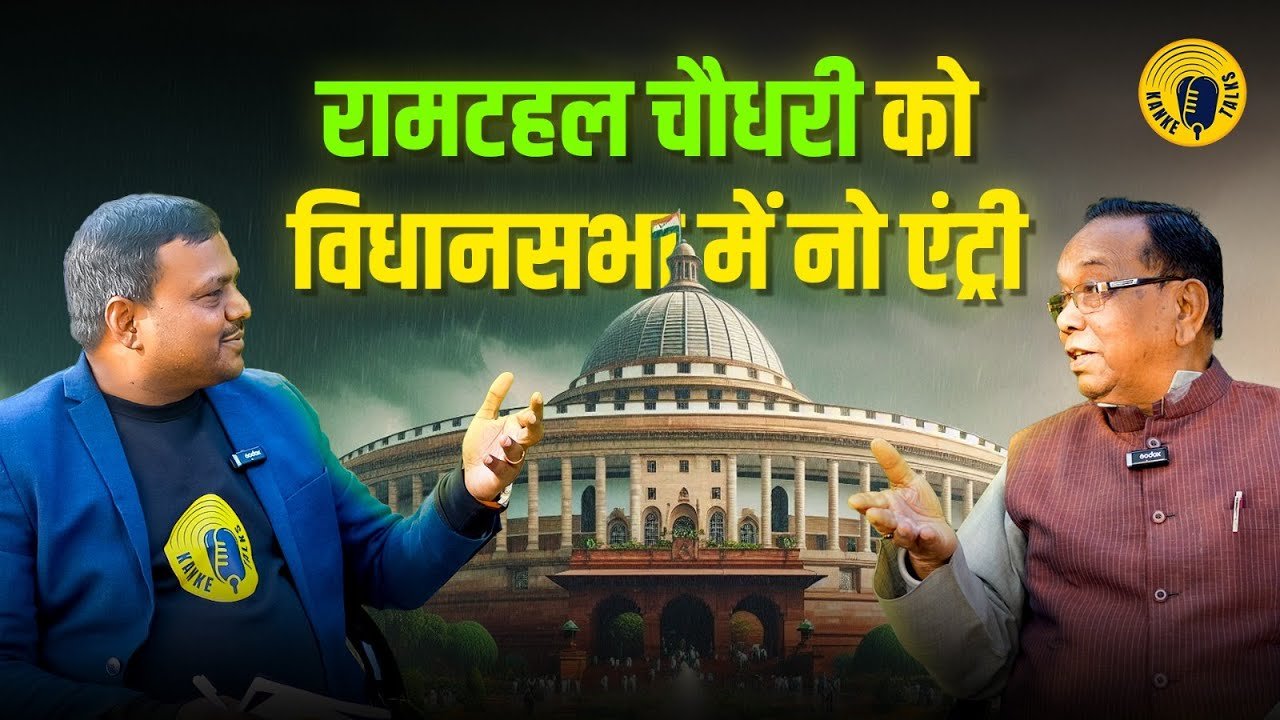In a small dusty village near Ranchi, a young boy watched the world with wide, curious eyes. He didn’t belong to a family of political dynasties or wealthy landowners. He came from the soil, like so many others in Jharkhand — poor, honest, determined. His name was Ram Tahal Choudhary, and his life would become a symbol of how conviction and education can uproot centuries of exploitation.
At just 25 years old, Ram Tahal did something unimaginable — he contested and won his first election, becoming a Member of the Legislative Assembly before even being registered officially in the Bihar Vidhan Sabha records. It wasn’t about ambition. It was about rage — the kind that grows inside a young man watching his people being exploited daily.
He had witnessed bribes being collected from poor farmers, women being mistreated, and backward castes being denied basic rights. “How long will this go on?” he asked himself. And from that burning question began his political journey.

The Boy Who Fought the System
People laughed at him in the early days. “Who is this boy raising his voice against us?” they scoffed. But the villagers listened. They saw something different in Ram Tahal — he wasn’t afraid. He would confront powerful moneylenders, corrupt officials, and middlemen and demand justice for farmers, laborers, and tribal communities. People started calling him when things went wrong. He became the voice of those who had none.
Yet, back at home, things weren’t so smooth. His family worried he was wasting his life, putting himself at risk. His father and uncles feared he’d get himself killed or land the family in financial trouble. But young Ram Tahal pressed on.
One of his early encounters with injustice involved a girl’s molestation. His younger brother and others were falsely implicated. Ram Tahal took the fight all the way to the Patna High Court, secured bail for 16 innocent boys — all without taking a single rupee from their families. He sold a piece of land to fund the legal battle. To him, justice came before property.
The Reluctant Politician Becomes a Leader
It wasn’t Ram Tahal who first thought of entering politics — it was the people around him. Seeing his growing popularity and good work, locals insisted he contest elections. He resisted. But eventually, when party politics failed him, he contested as an independent — and nearly won, losing by a single vote in 1967. Two years later, he won by 25,000 votes. The boy who once stood alone now had a movement behind him.
The Education Revolution
As an MLA, he noticed something disturbing — missionary-run schools were rejecting tribal and backward caste children. Access to education was a weapon being used to maintain the status quo.
That’s when Ram Tahal made a radical decision: “If no one will teach our children, I will.”
With a thatched mud-walled structure, ten students, and borrowed tiles for a roof, he opened his first school. People laughed. “Isn’t running a school a Marwari job? Or for missionaries?” they mocked. But ten students became fifty. Fifty became hundreds. He poured his heart, soul, and savings into his mission. Teachers worked with minimal pay, but with maximum pride. “One day,” he told them, “when your students change the world, you will be proud you began here.”
Over time, the movement grew. 20 educational institutions were established under his leadership, including CBSE-affiliated schools and engineering and B.Ed colleges, serving thousands of underprivileged students. His focus was clear — give the poor and middle-class families the same quality of education as the rich.
The Man Who Refused to Be Bought
Ram Tahal never accumulated wealth. “People think I’m a millionaire,” he laughs. “But I’ve never taken a rupee more than I deserve.” In a country where politicians are often surrounded by allegations, he remains clean — no corruption cases, no shady land deals. “While others build universities for business, I build schools to serve,” he says. His colleges and institutions became known not just for their academic quality but for their values. He refused to commercialize education. In fact, when 3000 students applied for just 100 B.Ed seats, people accused him of favoritism. But Ram Tahal remained firm: “I’ll take only 100. We are here to educate, not profit.”
The Fight for Jharkhand
His political career wasn’t limited to education. He was a five-time Member of Parliament and one of the key figures in the movement for Jharkhand’s statehood. “We gave up our seats, our positions, even wrote resignation letters,” he recalls. “The separation of Jharkhand wasn’t handed to us. We had to fight for it.”But even now, he’s deeply disappointed in what Jharkhand has become. “The roads are broken. They haven’t built the flyovers.”There’s corruption everywhere,” he says with sorrow. “We had hoped for development. What we got was exploitation in a new form.”
A Voice Against Corruption
Even in his later years, Ram Tahal hasn’t gone quiet. He continues to speak out — about the poor condition of schools, hospitals without doctors, and college buildings without teachers. He points fingers at both state and central governments, demanding accountability. “Development money is wasted,” he says. “Officers take commissions. Contractors profit. But the public — they get nothing.” He calls out corruption in private universities too. “Most of them sell degrees. Education has become business. Where’s the value? Where’s the knowledge?”
Still Fighting, Still Dreaming
Even today, Ram Tahal Choudhary walks with the same fire in his heart. He dreams of opening a university, but land remains a challenge. “We have 25 acres, need 30,” he says. “But money? No, we’ve never had much.” He could have chased power. He could have become rich. But he chose to remain with the people — the poor, the forgotten, the voiceless. And they’ve never stopped loving him for it.
He is not just a politician. He is a movement.
From a small village boy fighting social evils to a national leader who built schools, resisted corruption, and changed lives — Ram Tahal Choudhary’s life is a lesson in purpose, grit, and selfless service.
In a world obsessed with power and money, his story reminds us that true leadership is not measured by wealth, but by the number of lives touched.

No responses yet